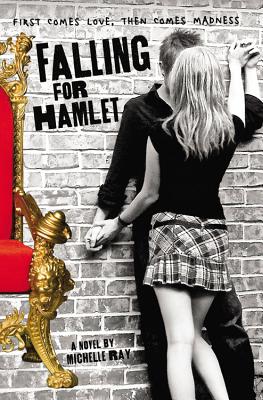 It isn't easy being in love with Hamlet. He's the Prince of Denmark and is followed everywhere by a security detail. He's also a romantic playboy who makes regular appearances in gossip columns. Ophelia has known Hamlet for as long as she can remember and is used to the realities of palace life (her father is one of the King's closest advisers). When she and Hamlet are together, everything feels right. That doesn't stop them from frequently breaking up. She and Hamlet might have a stormy relationship, but it works for them. Then his father dies, and everything starts to unravel. This isn't the story Ophelia told the police. This isn't the story she told the press. This is how it really happened.
It isn't easy being in love with Hamlet. He's the Prince of Denmark and is followed everywhere by a security detail. He's also a romantic playboy who makes regular appearances in gossip columns. Ophelia has known Hamlet for as long as she can remember and is used to the realities of palace life (her father is one of the King's closest advisers). When she and Hamlet are together, everything feels right. That doesn't stop them from frequently breaking up. She and Hamlet might have a stormy relationship, but it works for them. Then his father dies, and everything starts to unravel. This isn't the story Ophelia told the police. This isn't the story she told the press. This is how it really happened.In the first episode of The X Files, Mulder notes that Scully wrote her college thesis on 'Einstein's Twin Paradox: A New Interpretation' and says,"Now that's a credential, rewriting Einstein." Part of what I enjoyed about reading Falling for Hamlet was seeing where it crossed paths with the original play. Famous scenes like the "to be or not to be" soliloquy or Ophelia's grief-stricken flower scene are here but changed to fit the story. This is more than just a retelling with updated language; by focusing on Ophelia, it shifts the story away from Hamlet and the royals. They're still there, of course, because Ophelia's story intertwines with them. But this book prompts a lot of questions about Ophelia as a person/character. Why is she so defined by men? Who is she without Hamlet, her father, her brother, Horatio? How does understand sex and sexuality? What does she want out of life? These are interesting questions that come out of the original story and are given a new twist with the contemporary setting of Falling for Hamlet.
Find it at IndieBound.
Read it with:
Hamlet by William Shakespeare
Hamlet by John Marsden
Ophelia by Lisa M. Klein
Romeo's Ex: Rosaline's Story by Lisa Fiedler
No comments:
Post a Comment